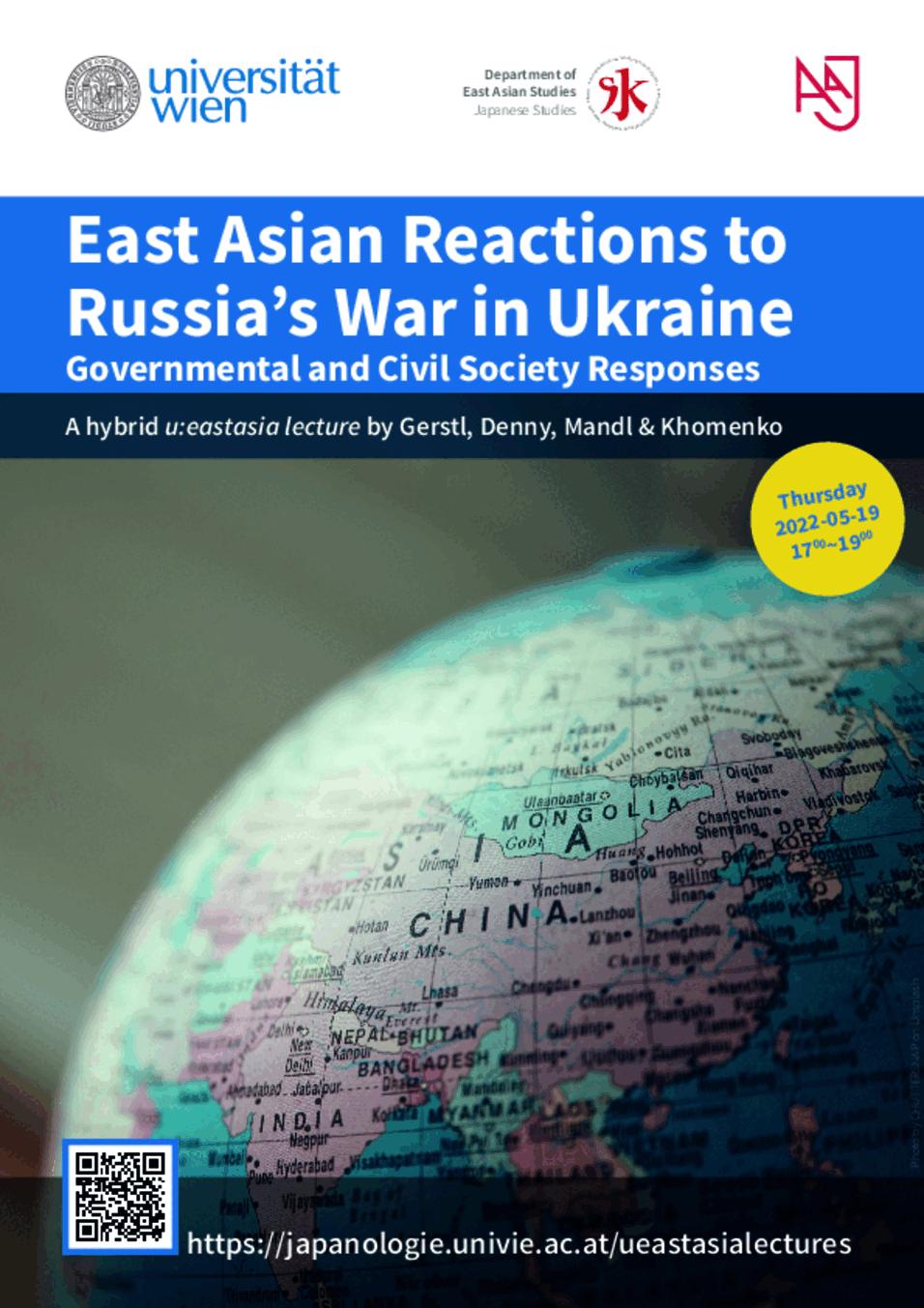| Abstract |
While the European Union and its member states strongly condemn Russia’s invasion of Ukraine on 24 February and have since provided humanitarian or even military support to Ukraine, the responses of the governments in Northeast and Southeast Asia are less unified. Japan, Singapore, South Korea and Taiwan joined the Western countries in sanctioning Russia, clearly emphasizing Russia’s responsibility for launching the war. Japanese Prime Minister Fumio Kishida drew a parallel to China’s perceived assertiveness in the South and East China Sea. Taiwanese President Tsai Ing-wen emphasized the unity of the Ukrainian citizens “to fight against the invasion by a powerful country”. Other nations, including Indonesia and Vietnam, but also the Association of Southeast Asian Nations (ASEAN), do neither make comparison to China’s policies nor openly criticize Russia. Rather, they demand to end the war, find a peaceful resolution and refer to rather abstract principles of international law.
This panel discussion will analyze the various strategic, economic and domestic motives of the governments to either unequivocally condemn Russia or to avoid naming and shaming Moscow. Moreover, the panelists will also (discuss the) point to different reactions of civil societies in East Asia which are not necessarily in line with the positions taken by the respective national governments. The spectrum is (also very) quite broad (and not necessarily in line with the positions taken by the respective national governments), ranging from strong support for Ukraine to some sympathies for “strongman” Vladimir Putin allegedly fighting against a US-dominated international order. By bringing together the perspectives of the national governments and the civil societies, this panel aims to initiate a multi-facetted (and comprehensive) discussion of East Asian reactions to Russia’s war against Ukraine.
| Discussants |
Alfred Gerstl is Associate Professor at the Department of Asian Studies at Palacký University Olomouc (Czech Republic) and President of the Central European Institute of Asian Studies (CEIAS), a transnational think tank (Bratislava, Olomouc and Vienna). In addition, he is sessional lecturer at East Asian Economy and Society (EcoS) and University of Continuing Education Krems. He is a specialist in International Relations, notably on Southeast Asia and the Indo-Pacific region. His recent research focuses on the economic and strategic impacts of China’s Belt and Road Initiative on Southeast Asia and the South China Sea dispute.
Dr. Olga Khomenko is an Associate Professor and Japan Program Director at Kyiv Mohyla Business School (KMBS),The National University of Kyiv Mohyla Academy Ukraine. She holds a PhD in Area Studies, specifically on the history of Japan,from the University of Tokyo (2005), a PhD in world history from the Ukrainian Academy of Science (2013), and an MBA from the Kyiv School of Economics (2017). From 2018 to 2020, she was a Fulbright Visiting Scholar at Harvard University, USA, at the Ukrainian Research Institute and Davis Center. Her research interests include the history of postwar Japan, consumption culture, Ukraine-Japan relations.
Dr. Steven Denney is a lecturer of East Asian Economy and Society in the Department of East Asia Studies at the University of Vienna. He is a comparativist that specializes in East Asian affairs with a focus on the Koreas. His core research interests lie at the intersection of migration, citizenship, and entrepreneurship studies. He also reads and contributes to studies in democracy and authoritarianism. Steven holds a Ph.D. in Political Science from the University of Toronto, an M.A. in Global Affairs and Policy from Yonsei University, and a B.A. in Political Science from Harding University.
Martin Mandl is a Junior Researcher at CEIAS and an Editorial Member of “ASIEN – The German Journal of Contemporary Asia”. He teaches on the political systems and international relations of East Asia and offers intercultural training on the region. As a passionate cook and former hospitality manager, Martin’s research is focused on the use of food in Taiwan’s public diplomacy.
| Moderator |
Agnes S. Schick-Chen is Associate Professor of Chinese Studies and Vice-Director of Studies at the Department of East Asian Studies, University of Vienna. Her main fields of research and teaching are the developments of legal and political culture in the PRC, Taiwan and Hong Kong. She has published books and papers on related topics, e.g. the discourse on Chinese legal culture and processes of coming to terms with the past in China and Taiwan.
| Date & Time |
u:japan lecture | s04e09
u:eastasia lecture #3
Thursday 2022-05-19, 17:00~19:00
max. 50 participants (on site) + max. 300 participants (online)
| Place & Preparations |
Please visit these links for university's special and general information regarding the current restrictions.
| Plattform & Link |
... and STREAMED online
https://univienna.zoom.us/j/68273481009?pwd=ak9TSUpiZkd3OXh6Y1JWRWVUd0gzZz09
Meeting-ID: 682 7348 1009 | PW: 623081

